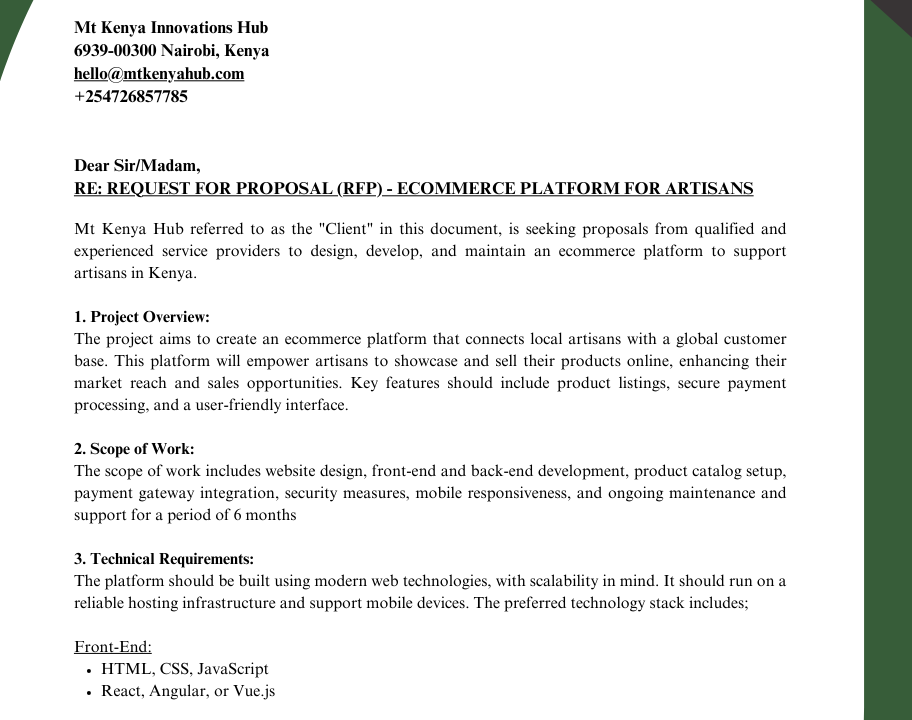Daniel Githua, the former CEO of embattled Kenyan supermarket chain Tuskys, recently co-founded Anko Retail, an E-commerce start-up where he is chief strategist. The platform was launched in February 2021. Githua talks about his plans for the company and Kenya’s e-commerce industry.
HOW WE MADE IT IN AFRICA.COM
1. Tell us about Anko Retail.
Anko is an idea we had for three years. We got together as a group of Kenyans, most of them living in the diaspora, and wanted to ride the wave of online business because we could see the tipping point was close. The company is four months old and I am a minority shareholder.
We stock everything you find in the supermarket such as foodstuffs, personal care and home care products. We also search for unique products; for example, we are stocking blankets from Egypt. There are gaps in the market with respect to non-food items and this is where Anko Retail wants to step in.
2. Take us through your experience building an e-commerce business from scratch.
I have to draw a comparison between e-commerce within a large organisation (what I experienced at Tuskys) and now doing it as a start-up. The fact that we are small with the ability to move quickly – to not have any legacy issues and be held back by past beliefs – has been useful.
As a result of Covid-19, many more people are willing to purchase online. Other e-commerce companies have forged a path and Kenyans now have experience buying online. The problems that existed, such as a lack of reliable payment platforms, have been sorted out by mobile money, particularly M-Pesa. The other challenge was that of delivery but Nairobi is now covered and there is a delivery rider almost every 10 metres.
Vendors have experience working with other e-commerce platforms in the market, so it has been easier for us to scale and bring new partners on board.
3. Trust is a major barrier to entry for e-commerce in Kenya. Explain how your model addresses this.
Many e-commerce businesses before us experienced problems. There was a time in Kenya when what people received was not what they had ordered and the process to get their money back or a replacement was a major deterrent for customers.
For the first six weeks, we allowed people to pay on delivery. The response was overwhelming; many potential shoppers who would not have shopped unless they got that option were encouraged to come on board. We also partnered with established brands. We now have people ordering from all over the country; 70% of our customers are not in Nairobi. The reason for this is supermarkets in the smaller towns usually only stock about 60% of the products that the bigger branches in the capital offer. It is in this gap that we are competing.
4. What payment methods do you allow?
We accept cards or mobile money through M-Pesa; 98% of payments are via M-Pesa.
5. How do you overcome the logistical difficulties of delivering to areas outside of Nairobi?
That has been our most successful innovation. We didn’t try to build infrastructure for delivery and distribution. Kenya had an existing delivery and distribution infrastructure owned by various parties, such as the bus companies. We opted to engage public transport companies as opposed to established courier companies because they offer lower prices and are far more flexible.
6. Has Covid-19 had any impact on your business?
Covid-19 had a positive impact on our business as an enabler of e-commerce. For example, it disturbed the existing supply chains for fresh produce. For a long time, the main route to market was the farmer would grow the crops, a broker would buy the product and take it to one of the big markets and then the mama mboga (vendors) would gather it from there and sell it in residential areas. A lot of these farmers were left without a market during the lockdown and we stepped in to connect them with their markets.
7. How do you compete against other players in the market?
We have about five large, established e-commerce firms within the country. Then there are hundreds of smaller e-commerce companies with platforms, websites and apps that have been trying unsuccessfully to get into the market. The reason the small players have a challenge is the supply chain. They might have a fantastic platform but don’t know how to get products onto their platform because they don’t have retail experience or a reliable supply chain.
Two things give us a competitive edge. We’ve got an excellent supply chain that enables us to offer our consumers the best prices. Kenya is a price-sensitive market and a price proposition is important for new entrants to get traction in the market.
The second reason is our convenience in terms of delivery. Everything on our site we have in our warehouse. That is how we are able to deliver efficiently; we offer a same-day delivery service in Nairobi. Many of our competitors are not able to do that. To a lesser extent, we also have a wide range of products which has also helped with traction.
8. Tell us about the challenges of working with your suppliers.
There are two types of vendors and each presents unique challenges. The smaller vendors may have an excellent and unique product but until they gain experience working with a larger firm, the informality can be a hindrance. We work with them and offer them training to formalise their businesses.
The main issue with larger vendors is that they have become accustomed to how other e-commerce platforms work. They are sometimes surprised at how our business operates. For example, we don’t sell anything we don’t have in our warehouse, so the goods must be in our warehouse and we pay them in advance. In doing so, we give them an incentive to want to supply more goods.
9. What are Anko’s growth plans?
We want to be able to cover all major towns in Kenya in our first year of operation. In addition to Nairobi, we already have collection points in Nakuru, Mombasa, Thika, Naivasha and Eldoret. What I mean by a collection point is that we have agreed with someone who already has a physical presence that our customers can pick their parcels from them, giving us a centralised place to deliver our parcels.
Our second objective is to have 300,000 active customers in the first year.
Article sourced from How We Made It In Africa. com


